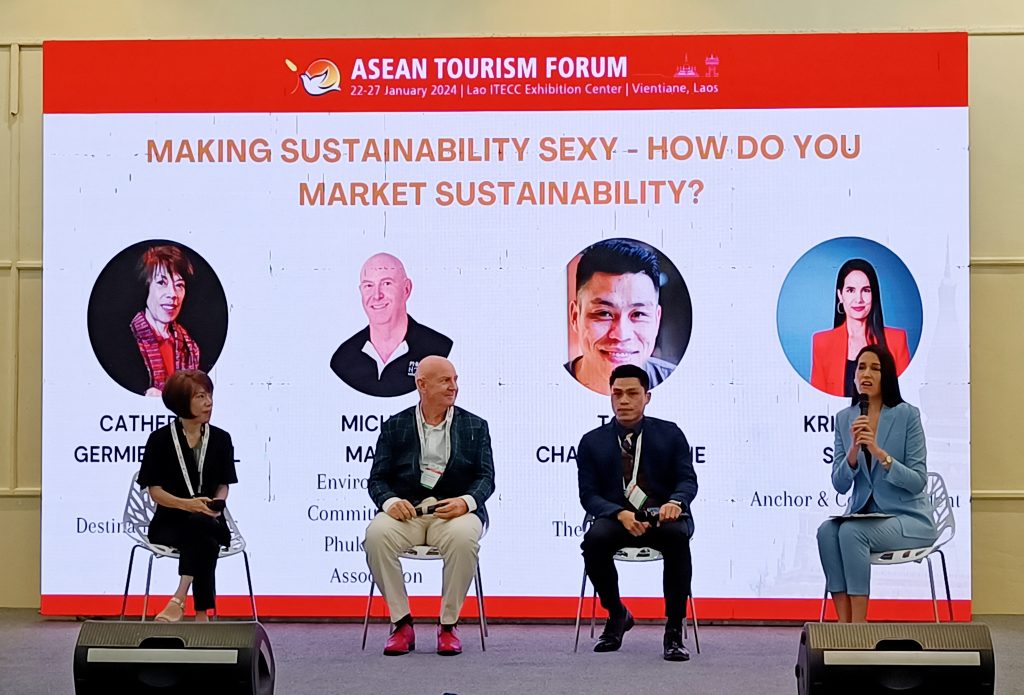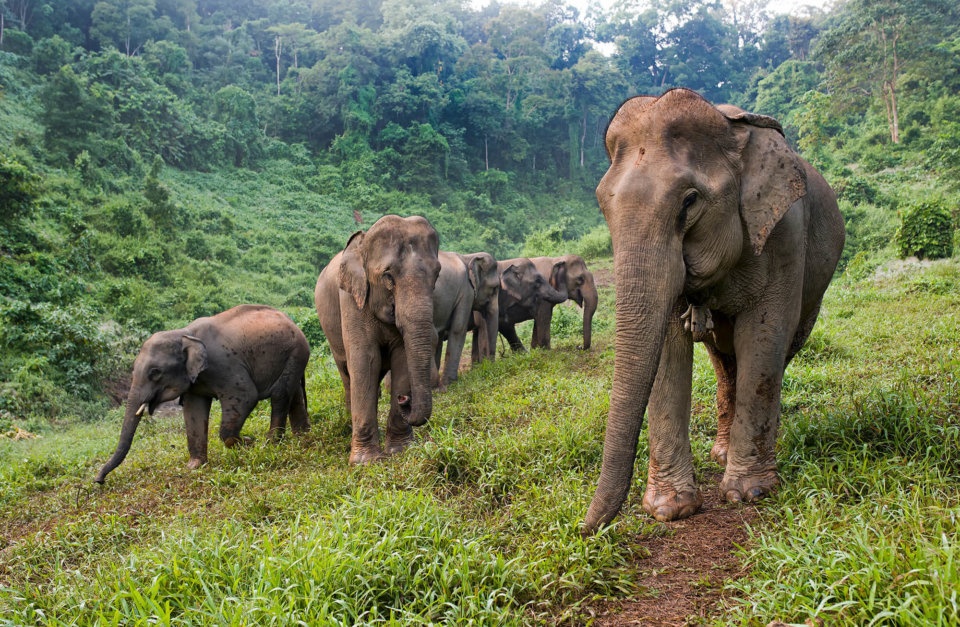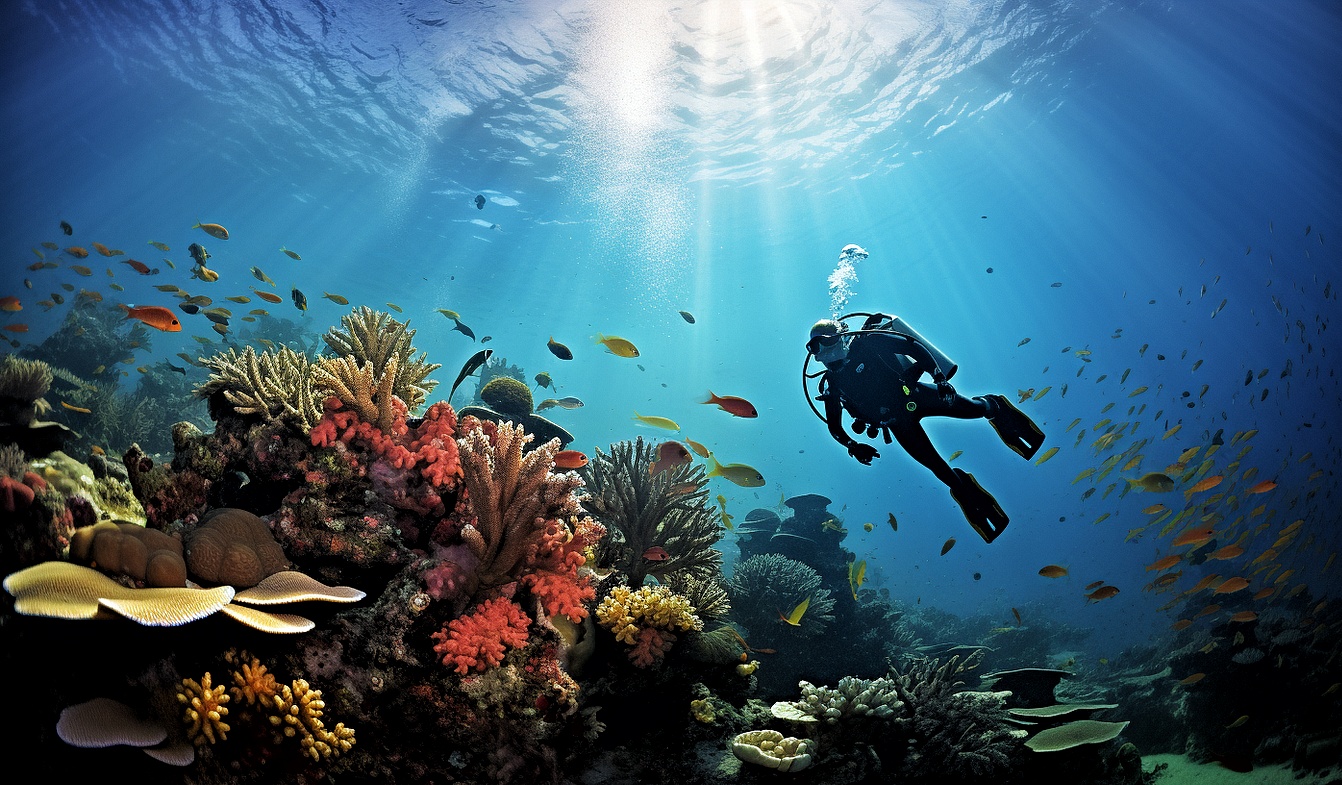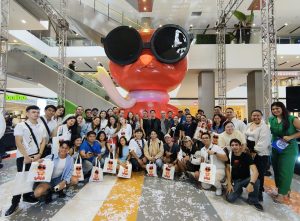MORE THAN just marketing ASEAN destinations, the ASEAN Tourism Forum has become a significant platform for member nations and industry partners to foster dialogue and address concerns and opportunities within and beyond the economic union. This year’s theme, “Quality and Responsible Tourism – Sustaining ASEAN Future”, is a clear nod toward the growing importance of sustainable tourism in the region.
During the ATF Conference last January 25 in Vientiane, Laos PDR, Destination Mekong CEO Catherine Germier-Hamel, Phuket Hotels Association environmental committee chair Michael Massey, and The Hiker Travel director Tom Chanthaphone shared their thoughts on how to market sustainability in the post-pandemic ASEAN tourism industry.

Germier-Hamel said that sustainable tourism goes beyond just visiting a destination. It must involve making a positive impact in all aspects of the places one visits.
“Sustainability should be everyone’s way of life. A sense of guiding principles that must be practiced every day. In the ASEAN context, this means preserving our rich biodiversity, respecting our diverse cultures, and ensuring the benefits of tourism reach our local communities,” she expounded.
The panelists agreed that selling sustainability in ASEAN tourism involves several strategies, such as the need to educate travelers about the benefits of sustainable tourism. This does not only include the unique experiences it offers, such as engaging with local communities, learning about traditional practices and wildlife, and exploring off-the-beaten-path destinations, but also the long-term benefits, such as preserving these experiences for future generations.
“As an entrepreneur, we also need to know how to get people involved and how our work will benefit the community, then we can figure out how sustainable our business model is,” said Chanthaphone. He referenced examples of responsible and sustainable tourism products, including the Elephant Conservation Center in Sayaboury, Laos, where the animals are in their undisturbed natural environment.
“We use the sanctuary to explain the importance of elephants in Lao culture in a non-exploitative way. This is how sustainability works,” he added.

Secondly, they also stressed the need to make sustainable choices easy and accessible for travelers. This can be achieved by promoting eco-friendly accommodations, responsible tour operators, and local businesses. Providing clear and reliable information about these options can help travelers make informed decisions.
Lastly, engaging all stakeholders in the industry, including governments, businesses, and communities, all of whom play a role in promoting and implementing sustainable practices, is very crucial. By working together, one can ensure that sustainability is not just a selling point, but an integral part of ASEAN tourism.
“We can do business while still maintaining meaningful connections with our culture or wildlife but make sure to have the safety guards in place to protect them. These are being done in successful sustainability practices, such as those in Myanmar and in Palawan, the Philippines,” concurred Massey.

Germier-Hamel voiced that we have to “stop overusing sustainability as a catch-all.” Instead, make the sustainable tourism experiences “sexy and appealing” to tourists.
“Now that we’ve bounced back post-Covid, we must never forget the lessons, such as giving importance to quality over quantity and value over volume. We need to walk the talk and be consistent,” said Germier-Hamel said.
The ATF’s theme this year certainly serves as a timely reminder of the importance of quality and responsible tourism in sustaining ASEAN’s future. As the region continues to promote and sell sustainability to the world, we can look forward to a future where tourism not only brings joy to travelers but also benefits the environment, our communities, and the economy.




